Books :: Award-Winning February 2017 Publications
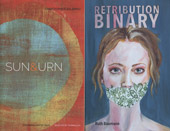 In February, Black Lawrence Press released Retribution Binary by Ruth Baumann, which advance praise calls “a study in wreckage and palpable absence” that is “Part dreamscape, part gutter-bucket realism” (Marcus Wicker). Retribution Binary is the winner of the Black River Chapbook Competition, and Baumann is no stranger to winning chapbook prizes, winning the Salt Hill Dead Lake Chapbook Contest in 2014 and the Slash Pines Chapbook Contest in 2015. Copies of Retribution Binary can be found on the Black Lawrence Press website, where readers can learn more about Baumann, and read an excerpt.
In February, Black Lawrence Press released Retribution Binary by Ruth Baumann, which advance praise calls “a study in wreckage and palpable absence” that is “Part dreamscape, part gutter-bucket realism” (Marcus Wicker). Retribution Binary is the winner of the Black River Chapbook Competition, and Baumann is no stranger to winning chapbook prizes, winning the Salt Hill Dead Lake Chapbook Contest in 2014 and the Slash Pines Chapbook Contest in 2015. Copies of Retribution Binary can be found on the Black Lawrence Press website, where readers can learn more about Baumann, and read an excerpt.
Also released last month was the winner of the 2016 Georgia Poetry Prize, Sun & Urn by Christopher Salerno, chosen by Thomas Lux. Lux calls the collection “madly imaginative, and, ultimately, a brilliant and deeply human book,” imploring readers to read it three times. Salerno’s fourth poetry collection, Sun & Urn is now available from the University of Georgia Press website, a book made from “the wild stuff of grief and loss.” Check out the press’s website for more information.

 “Calmly on Fire,” a found photograph and collage on paper by Lorna Simpson, makes it difficult for readers to look away from
“Calmly on Fire,” a found photograph and collage on paper by Lorna Simpson, makes it difficult for readers to look away from 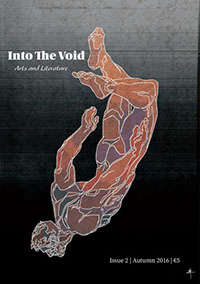 Published in Ireland, this spring 2017 issue of
Published in Ireland, this spring 2017 issue of 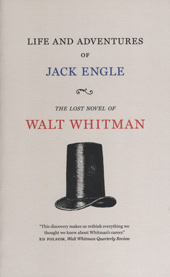 The University of Iowa Press brings readers a real treat: the lost novel of Walt Whitman, Life and Adventures of Jack Engle. While we’re familiar with Leaves of Grass, Life and Adventures of Jack Engle was serialized in a newspaper under a pseudonym, read with little fanfare, and then disappeared.
The University of Iowa Press brings readers a real treat: the lost novel of Walt Whitman, Life and Adventures of Jack Engle. While we’re familiar with Leaves of Grass, Life and Adventures of Jack Engle was serialized in a newspaper under a pseudonym, read with little fanfare, and then disappeared.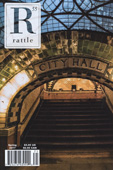 Issue #55 (Spring 2017) of
Issue #55 (Spring 2017) of 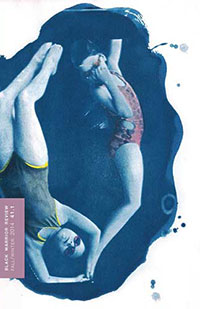 Issue 43.2 (Spring/Summer 2017) of
Issue 43.2 (Spring/Summer 2017) of 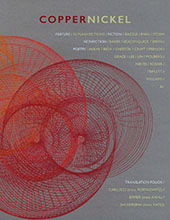 Editor Wayne Miller has announced several changes to
Editor Wayne Miller has announced several changes to 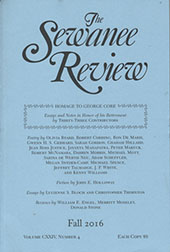 “This iteration of the
“This iteration of the 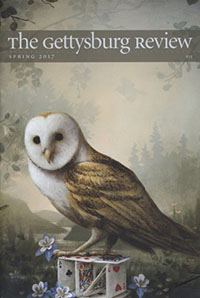
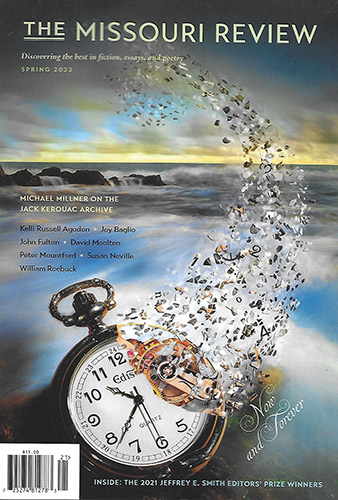 “Stress Test” by Eugenia Loli is the eye-catching cover art on
“Stress Test” by Eugenia Loli is the eye-catching cover art on  Winner
Winner 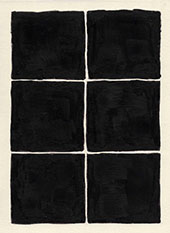 “It bears acknowledging that
“It bears acknowledging that 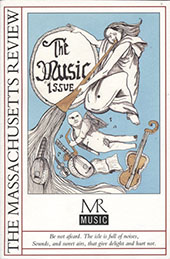 Executive Editor Jim Hicks opens the newest issue of
Executive Editor Jim Hicks opens the newest issue of 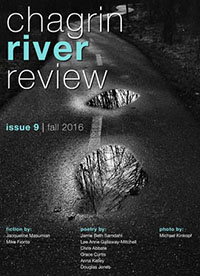
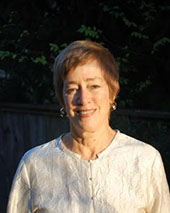 First Place Winner
First Place Winner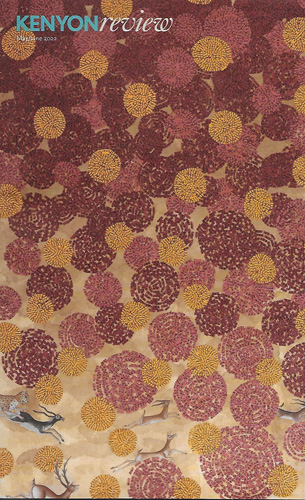 The 2016 Kenyon Review Short Fiction Contest as selected by final judge Jaimy Gordon are featured in the January/February 2017 issue of
The 2016 Kenyon Review Short Fiction Contest as selected by final judge Jaimy Gordon are featured in the January/February 2017 issue of 
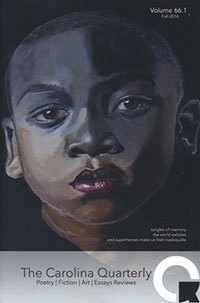 Aimee Bungard is the featured artist in the Winter 2017 issue of
Aimee Bungard is the featured artist in the Winter 2017 issue of 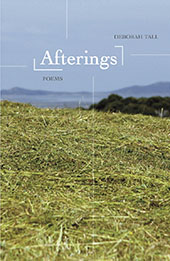 The fall 2016 issue of
The fall 2016 issue of 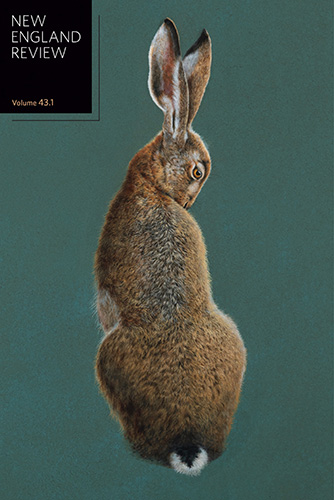 In its regular “Rediscoveries” section, the newest issue of Middlebury’s
In its regular “Rediscoveries” section, the newest issue of Middlebury’s 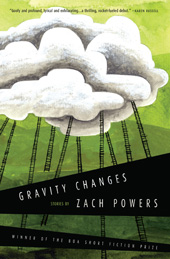 BOA Editions has announced spring publications of the winners of the Isabella Gardner Poetry Award, the
BOA Editions has announced spring publications of the winners of the Isabella Gardner Poetry Award, the  Lynn Easton’s “The Equation,” winner of the 2016 Contance Rooke Creative Nonfiction Prize as selected by final judge Lee Maracle, is featured in the Winter 2016 issue of
Lynn Easton’s “The Equation,” winner of the 2016 Contance Rooke Creative Nonfiction Prize as selected by final judge Lee Maracle, is featured in the Winter 2016 issue of 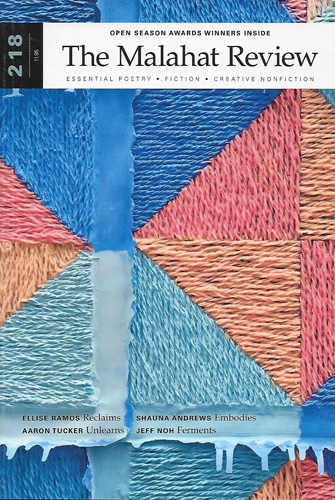 Lawrence Paul Yuxweluptun ‘s “Christy Clark and the Kinder Morgan Go-Go Girls” draws readers to the Winter 2016 cover of
Lawrence Paul Yuxweluptun ‘s “Christy Clark and the Kinder Morgan Go-Go Girls” draws readers to the Winter 2016 cover of 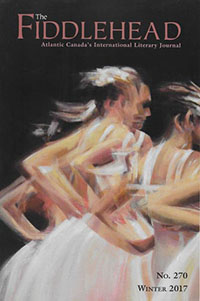 I was mesmerized by Ann Manuel’s “Blur I” on the Winter 2017 cover of
I was mesmerized by Ann Manuel’s “Blur I” on the Winter 2017 cover of 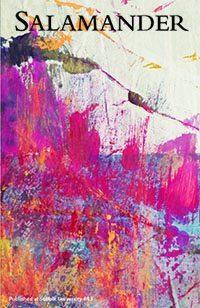 And just one more splash of color to brighten a winter’s day: “Gouache on Newspaper” by Elizabeth Doran on the cover of Suffolk University’s
And just one more splash of color to brighten a winter’s day: “Gouache on Newspaper” by Elizabeth Doran on the cover of Suffolk University’s 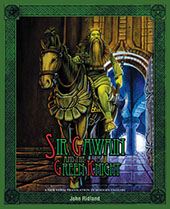
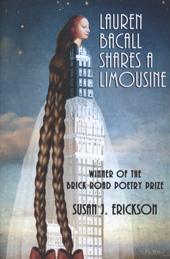 With the annual
With the annual 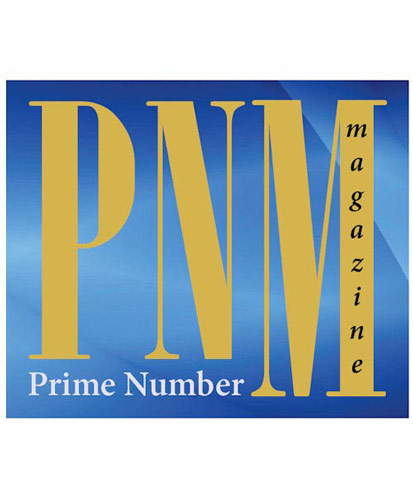 Prime Number Magazine
Prime Number Magazine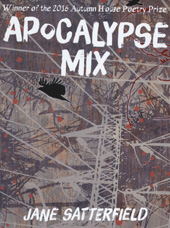 In February, Autumn House Press is scheduled to release the 2016 winners of their annual
In February, Autumn House Press is scheduled to release the 2016 winners of their annual 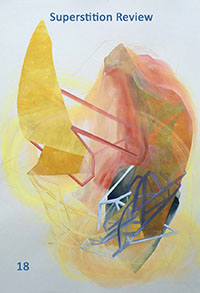 “My Beating Heart” by Rossitza Todorova welcomes readers to
“My Beating Heart” by Rossitza Todorova welcomes readers to 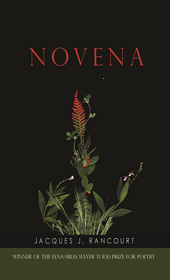 Next month, readers can look forward to the publication of Novena by Jacques J. Rancourt, winner of the
Next month, readers can look forward to the publication of Novena by Jacques J. Rancourt, winner of the 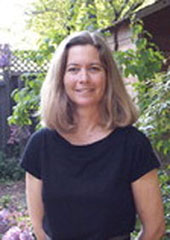 Able Muse Write Prize for Fiction
Able Muse Write Prize for Fiction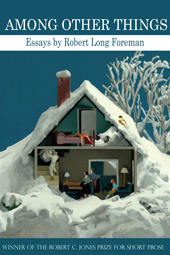 Pleaides Press annually holds the
Pleaides Press annually holds the 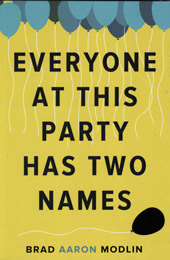 During the tail end of 2016, Southeast Missouri State University Press released the winner of the 2015
During the tail end of 2016, Southeast Missouri State University Press released the winner of the 2015  Editor Nathaniel Perry [pictured] of
Editor Nathaniel Perry [pictured] of